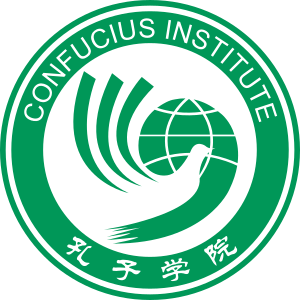Self-Censoring by Chinese Educational, Cultural Program Worries African Educators

NAIROBI —
The Chinese government is promoting Chinese language and culture through Confucius Institute programs worldwide, including in Africa. Some educators say they're concerned about what they say is censorship in Chinese-funded programs.
Steve Wakoli has been working for three years to perfect his skills in kung fu, a popular martial art taught at the Kenyatta University Confucius Institute.
He’s also a teacher at the institute, where hundreds of students are learning about Chinese culture and language at the facility named after the ancient Chinese philosopher whose teachings are a cornerstone of life in East Asia.
There are about 525 Chinese-funded Confucius Institutes worldwide, including 54 in Africa, according to a 2019 U.S. Senate report by the Homeland Security and Governmental Affairs Committee.
Jacob Ratemo is one of more than 500 students enrolled here.
He says learning about Chinese language and culture will help him find better work. But Ratemo acknowledges the classes avoid subjects that are politically sensitive in China.
"But the advantage is, especially when you are at the university level, you can access such matters. I can go to VOA News on a regular basis and see what is going on in China. I can go to Google and get that information. So, yes, I can admit there are a few challenges when you ask those questions to the Chinese themselves," Ratemo said.
According to the Senate report, “Confucius Institute funding comes with strings that can compromise academic freedom.” For example, the Chinese teachers sign contracts with Beijing pledging not to damage China’s national interests.
Confucius Institute management turned down VOA's requests for comment.
Teacher Steve Wakoli says the institute's syllabus does not allow much time for politically sensitive topics and debate.
But analysts say the Confucius Institutes suppress discussions on topics like Taiwan and Hong Kong to protect their funding from the Chinese government. Martin Oloo is a political analyst in Kenya.
"Indeed, there have been issues around whether or not the institute is being used to propound what would be seen as anti-democracy, anti-human rights, and those concerns are founded in terms of what is the official Chinese policy on Taiwan, on Hong Kong," Oloo said.
China considers Taiwan a wayward province and has not ruled out the use of force to reunite it with the mainland. Beijing imposed a national security law for Hong Kong in 2020 and many forms of dissent are criminalized.
Educator Jonathan Waseya told VOA that the institutes are doing an injustice to students by limiting their learning and exposure to different ideas.
"Yes, the opportunity comes in through the Confucius Institutes funded by China — that is OK. But can you get as an individual to talk about Taiwan, to talk about Hong Kong, talk about Korea, talk about North and South Korea and how the whole bigger picture fits into the geopolitics of today," Waseya said.
With so many signing up for classes at the Confucius Institutes, education experts say it is critical that students find other avenues to learn about topics that Beijing may consider politically sensitive.




